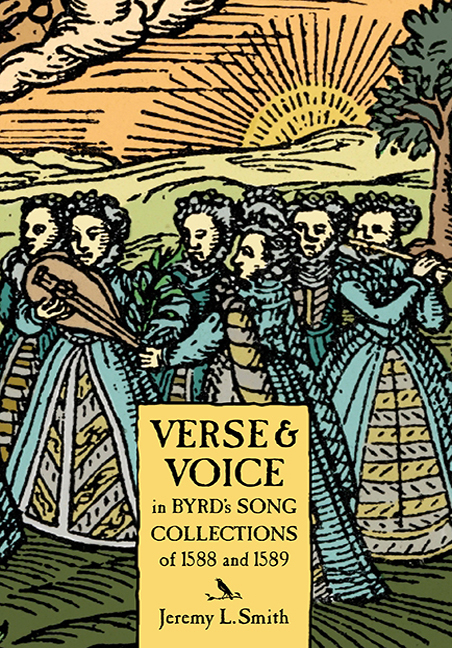Book contents
- Frontmatter
- Contents
- List of Figures
- List of Music Examples
- Preface and Acknowledgements
- Editorial Conventions
- Introduction
- CHAPTER 1 Psalmes
- CHAPTER 2 Sonets & Pastoralls, I
- CHAPTER 3 Sonets & Pastoralls, II
- CHAPTER 4 Sonets & Pastoralls, III
- CHAPTER 5 Songs of sadnes and pietie
- CHAPTER 6 Songs of Three Parts
- CHAPTER 7 Songs of Four Parts
- CHAPTER 8 Songs of Five Parts
- CHAPTER 9 Songs of Six Parts
- Conclusion
- Select Bibliography
- Index
- Studies in Medieval and Renaissance Music
CHAPTER 1 - Psalmes
Published online by Cambridge University Press: 05 July 2016
- Frontmatter
- Contents
- List of Figures
- List of Music Examples
- Preface and Acknowledgements
- Editorial Conventions
- Introduction
- CHAPTER 1 Psalmes
- CHAPTER 2 Sonets & Pastoralls, I
- CHAPTER 3 Sonets & Pastoralls, II
- CHAPTER 4 Sonets & Pastoralls, III
- CHAPTER 5 Songs of sadnes and pietie
- CHAPTER 6 Songs of Three Parts
- CHAPTER 7 Songs of Four Parts
- CHAPTER 8 Songs of Five Parts
- CHAPTER 9 Songs of Six Parts
- Conclusion
- Select Bibliography
- Index
- Studies in Medieval and Renaissance Music
Summary
IN the ten songs of his opening section of the Psalmes, Sonets, & songs of 1588, with which we begin, Byrd offered the strongest evidence that the overall message of this sequence was at least in part a personal one – or that he wished to make that impression. As Rivkah Zim explains, “sixteenth-century commentators encouraged individuals to recognize representations of their own experiences and emotions in psalms, and to use them as models for personal prayer and meditation.” Byrd may have originally set these psalms to music for other people and other purposes – although at least one appears to have been originally designed for inclusion in the set – but in publishing them, he placed what might have been perceived as his personal prayers before his Queen and her public.
Thematically, through his text selection and settings, Byrd portrayed in this section the moral virtue of holiness, a depiction of the truly righteous as defined by divine law and obeisance. Byrd's decision to open his story this way was probably stimulated by a 1571 tract “An Homilee agaynst disobedience,” in which John Jewell, the Queen's royally appointed homilist, proclaimed: “whereby it is evident, that obedience is the principall vertue of all vertues, and in deede the verye roote of all vertues, and the cause of all felicitie.” Significant, in this light, are Byrd's references to the Decalogue (in the total number of ten psalms selected and in the special use of BE 12: 6, with its references to a holy place or “sacred tent”) and to other aspects of Old Testament law as depicted in Psalm 119 (BE 12: 3 and 4). Byrd also provided here a clarifying portrayal of the “blessed” people who would follow the Lord's commandments in the proper spirit (BE 12: 8), and the “wicked” ones who would not (BE 12: 7). All of the above evokes the Mosaic Covenant, which, suggestively, outlines a pact whereby God agrees to protect his law-abiding followers from their enemies. As much as this representation of a holy subject would seem grounded in Old Testament theology, it was not without contemporary relevance.
- Type
- Chapter
- Information
- Publisher: Boydell & BrewerPrint publication year: 2016



